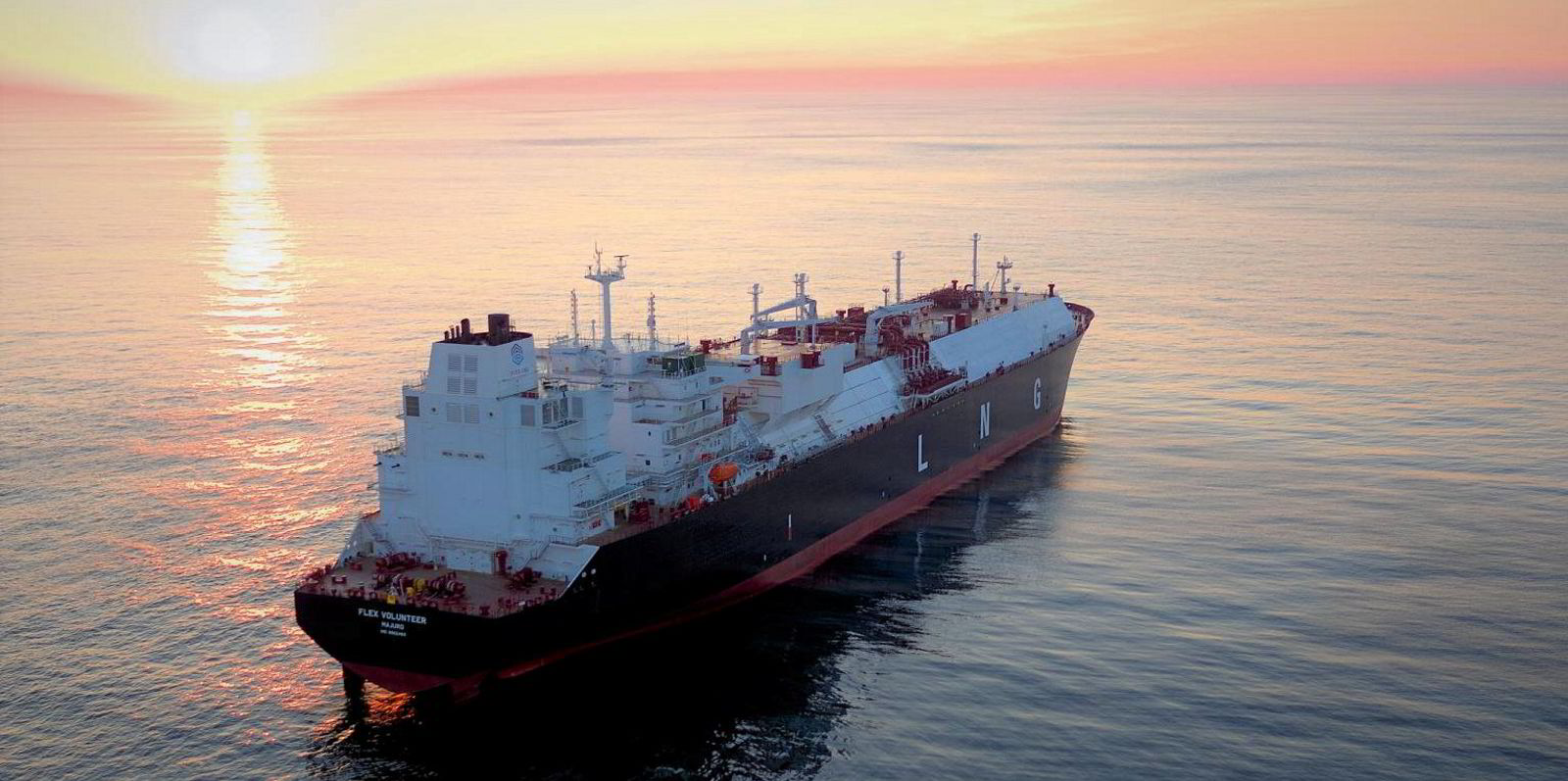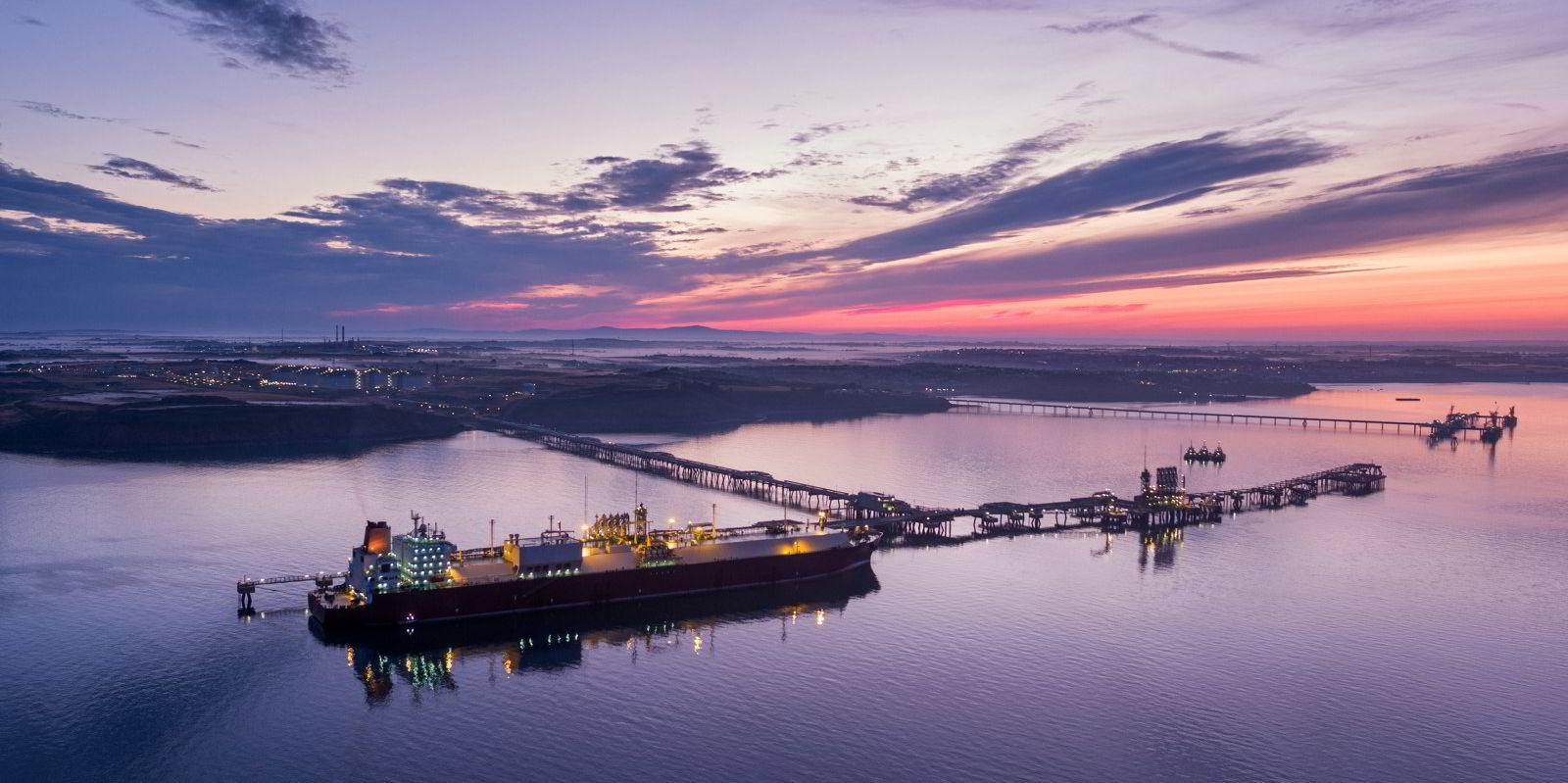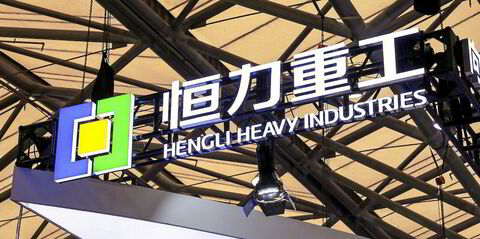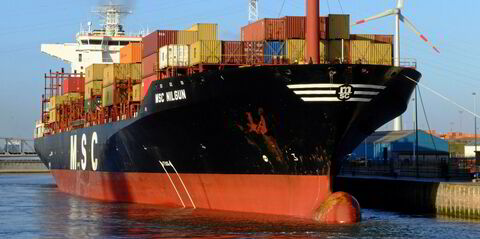John Fredriksen-controlled Flex LNG has fixed out its remaining open LNG carrier on a spot voyage at a rate in the high-$200,000-per-day range.
The market is alive with talk that the 174,000-cbm newbuilding Flex Volunteer has been tied up by energy major Shell at a rate in the region of $275,000 per day or above.
Flex has previously said that round-trip economics — where costs are paid for positioning — are being paid in Asia, where the vessel was positioned.
Those watching the business said this could indicate a time charter equivalent rate well in excess of $300,000 per day for the fixture.
In an update presentation, Flex showed the Flex Volunteer as expected to be open again at the end of December or in early January.
Time-charter central
On Monday, Flex LNG announced it had agreed two time-charter deals with an energy major for its 173,400-cbm Flex Courageous (built 2019) and Flex Resolute (built 2020).
The contracts are for a minimum of three years with the charterers having the option to extend the hire by up to four years, in a pair of two-year periods.
Flex said the vessels will be delivered to the charterer, which it did not name, during the first quarter of 2022 following their existing time charters.

Chief executive Oystein Kalleklev said: "Since April, we have thus secured long-term fixed hire employment for eight, possibly nine, of our ships.
He said this is in line with Flex's strategy of securing attractive revenue backlog once the market has improved. "Our firm contract backlog is now about 33 years with a further 36 years of optional backlog."
Sold out
In its presentation, Flex stamped "Sold out – Come back soon" across its fleet list employment page.
The company showed that four of its vessels, with an option on a fifth, are fixed to US producer Cheniere Energy, while one is on charter to a trader and another a portfolio player.
Flex said lower European gas prices means that Asia is exerting more pull on cargoes.
It showed arbitrage on a $22m US cargo as $66m to Europe and $98m to Asia, where US Henry Hub LNG prices are around $5.5 per MMBtu, Europe's TTF — Dutch Title Transfer Facility — is $22 per MMBtu and the Asian JKM — Japan Korea Marker — is at $30 per MMBtu.
Flex said a lack of ships and high arbitrage are driving up spot rates.
The company quoted rising rate assessments from the Baltic Exchange and Spark Commodities from 29 October.
On Friday, the Baltic raised its BLNG1 route from Australia to Japan by more than $40,000 per day to $293,163 per day, while Spark25, a similar route, was jacked up to $245,250 daily.
The exchange bumped up its BLNG3 route from the US Gulf to Tokyo to $234,050 per day.
On the US-Europe route, the Baltic's BLNG2 route rose to $230,103 per day, while the Spark30 was up at $200,500 per day.
On tonnage availability, Flex said there is one steam-turbine ship available on a prompt basis and only two in the next 29 days.





